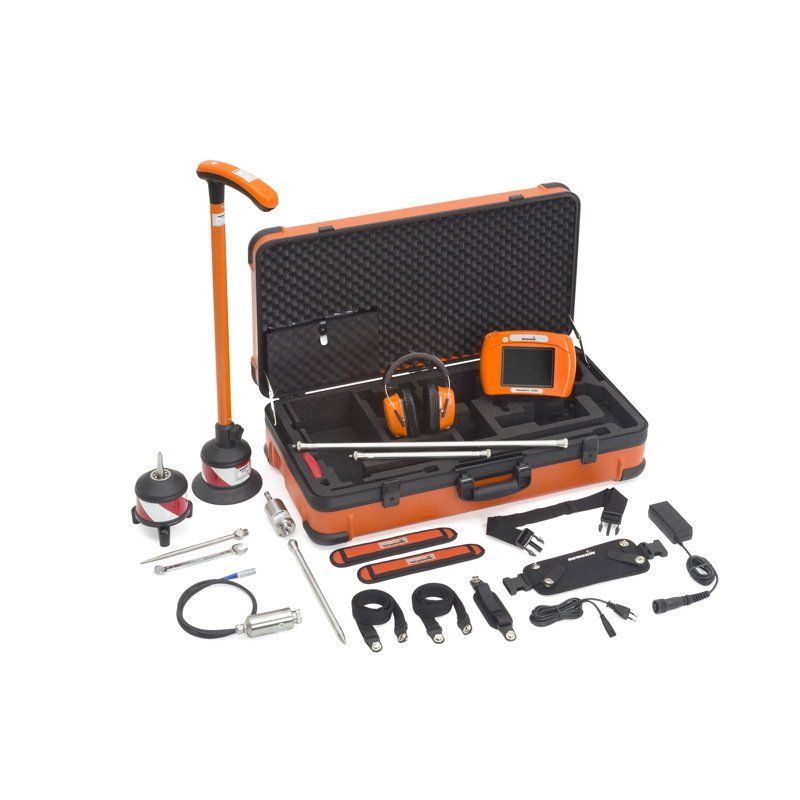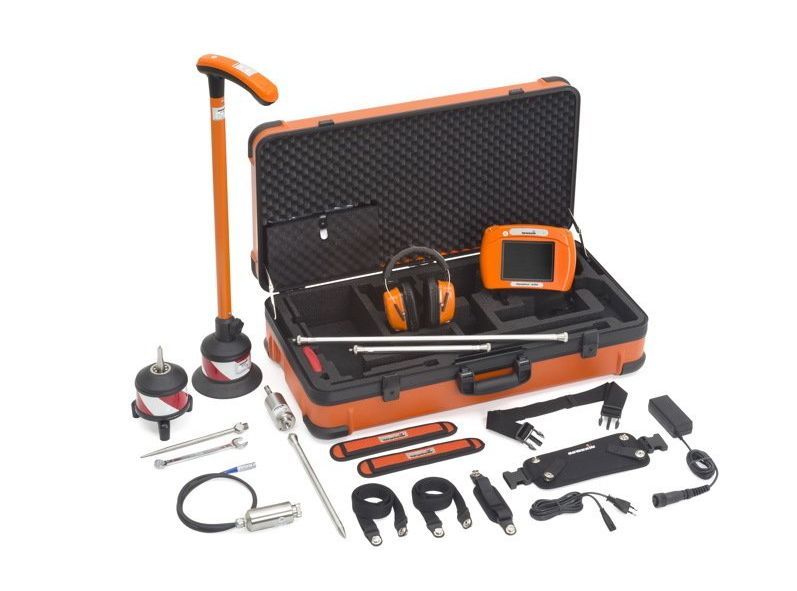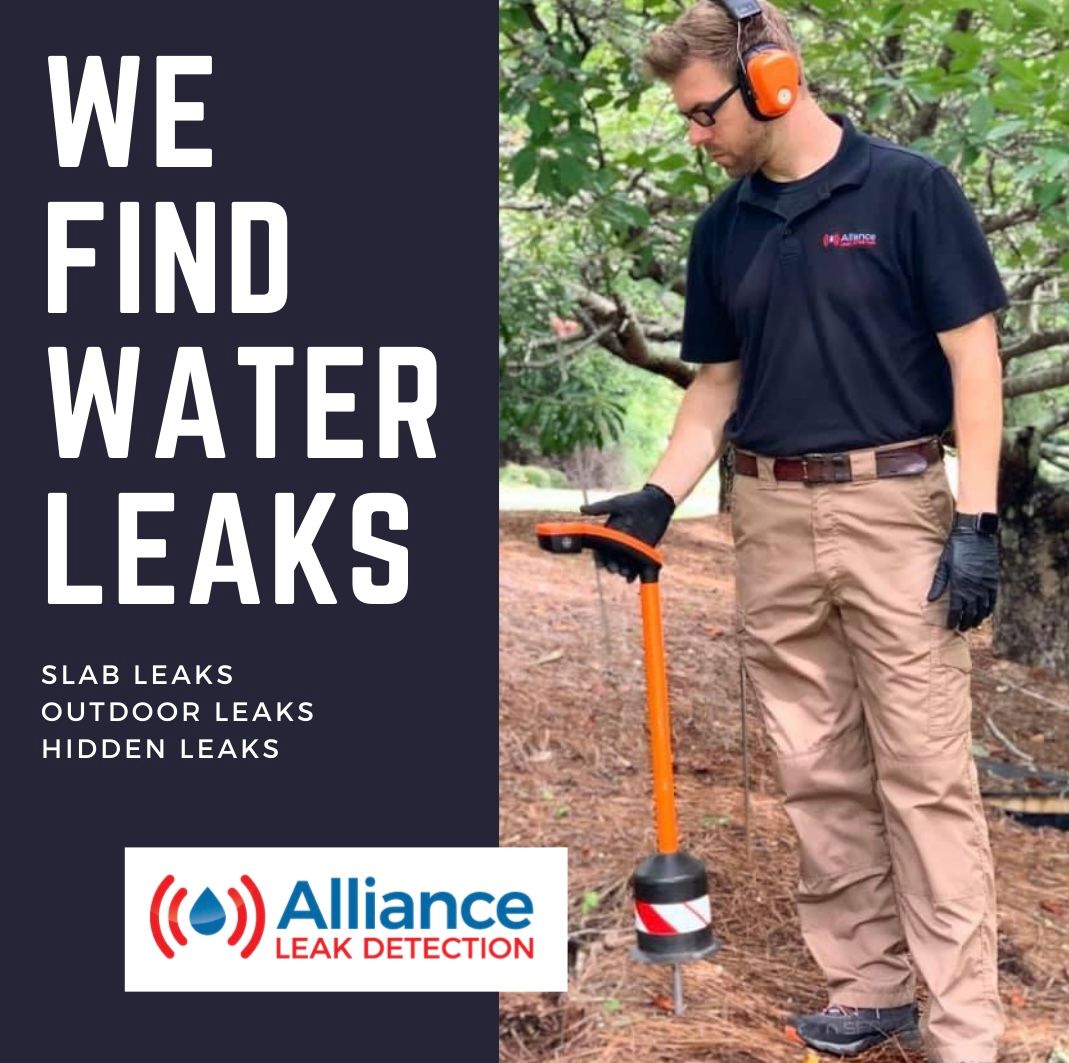What is a Slab Leak?
Slab leaks refer to plumbing-related water leaks that occur underneath or within the concrete slab foundation of a building. Most often, slab leaks are often the result of a broken water pipe. There are many factors that can contribute to a broken water pipe in a slab, including water pressure-related issues, aging pipes, shifting soil, and sometimes improper installation. Slab leaks can be challenging to detect and repair and, if left unchecked, can damage your property and waste massive amounts of water. At Alliance Leak Detection, we utilize the latest non-invasive leak detection equipment and training. This enables our technicians to find your slab leak even if no water is visible.
Contact Alliance Leak Detection in Newnan, GA, to schedule your slab leak detection service today!
Signs of a slab leak.
Slab leaks often occur suddenly. However, due to their location, it can sometimes be hard to know when they happen. Water can take many different paths when a pipe breaks or begins to leak under a slab. Sometimes the water will slowly fill the entire slab until it flows out the sides or seeps into the home. Or, sometimes, it may begin to seep into the house immediately.
At Alliance Leak Detection, we specialize in identifying slab leaks. Recognizing the warning signs of a slab leak is essential to avoid potential damage to your property. Here are a few warning signs that a slab leak may be occurring
High water bill.
A high water bill is often the first sign clients receive indicating they may have a leak. If you notice that your water bill has suddenly increased without any explanation or change in water usage, it could be a sign of a slab leak. When a slab leak occurs, water will be continuously released under the foundation until it is discovered. The water passing through the meter will continuously register water usage even when all the plumbing fixtures in your home are turned off. This means you could be paying for water you are not using, resulting in a higher-than-normal water bill.
Low water pressure.
You may also notice that the water is taking longer to flow out of the faucets or not coming out as strongly as it usually does. Lower-than-normal water pressure at the faucets and fixtures could be an indication of a slab leak. When a slab leak occurs, the pipe break or crack allows water to escape and flow into the surrounding soil. Thus the pressure in the water supply system can drop, resulting in reduced water pressure at your faucets. If you've noticed a sudden drop in your home's water pressure, call Alliance Leak Detection to schedule an inspection.
Sound of running water.
If you can hear the sound of running water even when all of the fixtures in your home are turned off, it could be an indication of a slab leak. Many people are accustomed to hearing water running when fixtures such as sinks, tubs, or showers are in use. However, you should never hear the sound of water running when no plumbing fixtures are being used. The sounds of running water may be faint, but if you listen carefully in a quiet room, you may hear them. The sounds are usually constant rather than intermittent, like a dripping faucet. These distinctive sounds of water should be investigated immediately.
At Alliance Leak Detection, we specialize in slab leak detection and can help identify the source of the sound of running water. Contact us directly to schedule an inspection if you hear the sound of water running when you shouldn't.
Wet spots on floors or carpets.
Noticing a wet spot on floors or a damp carpet can be an indication of a slab leak. When a slab leak occurs, the water can seep through the slab foundation and into the home, affecting the flooring. You may notice this as a wet spot or puddle on the floor. Sometimes floor covering, such as carpet, will become damp, or wood flooring may begin to cup, bow or delaminate, resulting in an "orange peel" appearance. You will typically see these wet spots near the baseboards or around the room's perimeter. If you notice any unexplained wet spots or signs of dampness, contact Alliance Leak Detection right away to schedule an inspection.
Mold or mildew.
If you notice a musty smell or see mold or mildew growing on your walls, baseboards, or flooring, it could be due to excess moisture caused by a slab leak. It's well known that mold and mildew thrive in moist environments, so an unchecked slab leak can create the perfect condition. As water seeps up through the slab foundation, it can begin to wick up our wood-framed walls and wet other materials, such as drywall and baseboards.
Don't let a slab leak turn into a severe mold problem. At Alliance Leak Detection, we specialize in locating slab leaks and minimizing any damage to your property. Our skilled technicians use advanced techniques to pinpoint the exact location of the leak, so repairs can be made quickly and efficiently. If you start to see dark staining on your walls or trim, contact us today to schedule an inspection.
Hot spots on the floor.
Hot spots on the floor can indicate a hot water slab leak. This occurs when a hot water line breaks underneath the slab, allowing hot water to escape and flow into the surrounding soil. Over time, the soil can become saturated, which can cause hot spots to appear on your floor. You may notice these hot spots as warm areas on your floor, or the room's temperature may become noticeably warmer than other rooms. Our skilled technicians can quickly locate the source of the leak using thermal imaging cameras and other advanced equipment. As a temporary measure, the water supply to the water heater can be turned off, and this should cease any further water loss until leak detection can be performed.
Don't let hot spots on your floor go unaddressed. Call Alliance Leak Detection today to schedule an inspection.
Cracks in the walls or foundation.
Cracks in the walls or foundation can be an indication of a slab leak. When a pipe breaks under the slab, the escaping water will begin to fill up the slab and flow into the surrounding soil. Over time, the soil can become saturated with water, causing it to shift and settle, resulting in cracks in your walls or foundation. You may notice these cracks as hairline fractures that gradually widen over time or as more significant, noticeable cracks that appear suddenly.
If you suspect that you have a slab leak, don't wait for the problem to worsen. Contact Alliance Leak Detection today. Our experienced technicians use state-of-the-art equipment and methods to locate slab leaks accurately and efficiently, minimizing any damage to your property. By fixing the problem early, you can save yourself a significant amount of money and avoid more extensive repairs down the road.
Common causes of slab leaks.
Slab leaks are typically caused by the deterioration or damage of water supply lines or drain pipes located beneath the concrete slab foundation of a building. The most common cause of slab leaks is high water pressure, resulting from a faulty or broken pressure regulator (PRV) or a malfunctioning or busted thermal expansion tank near the water heater.
These devices are very common and should be installed on every home in Newnan, Ga, as they are required by code. The failure of either one of these devices can cause sudden pressure surges, leading to slab leaks. Other contributing factors to slab leaks include soil shifting or settling, abrasion from rocks or debris, corrosion due to the age of the pipes or chemical reactions within the soil, and poor installation or construction. Additionally, changes in temperature and moisture levels can cause the pipes to expand and contract, leading to cracks and leaks.
It's essential to address slab leaks as soon as possible to prevent further damage to your property and avoid high water bills. If you suspect a slab leak, contact a professional leak detection service like Alliance Leak Detection to promptly identify and repair the issue.






